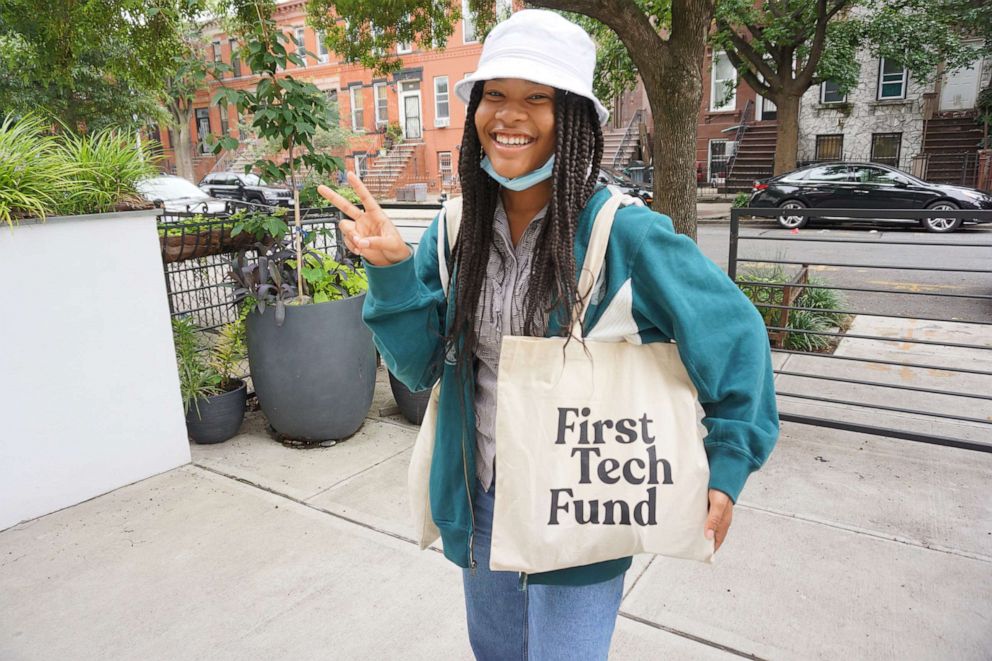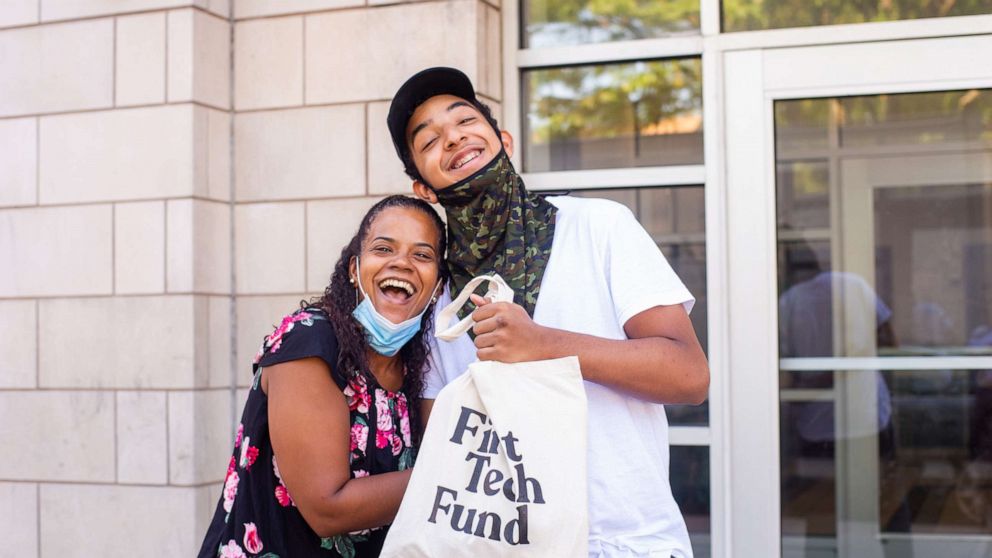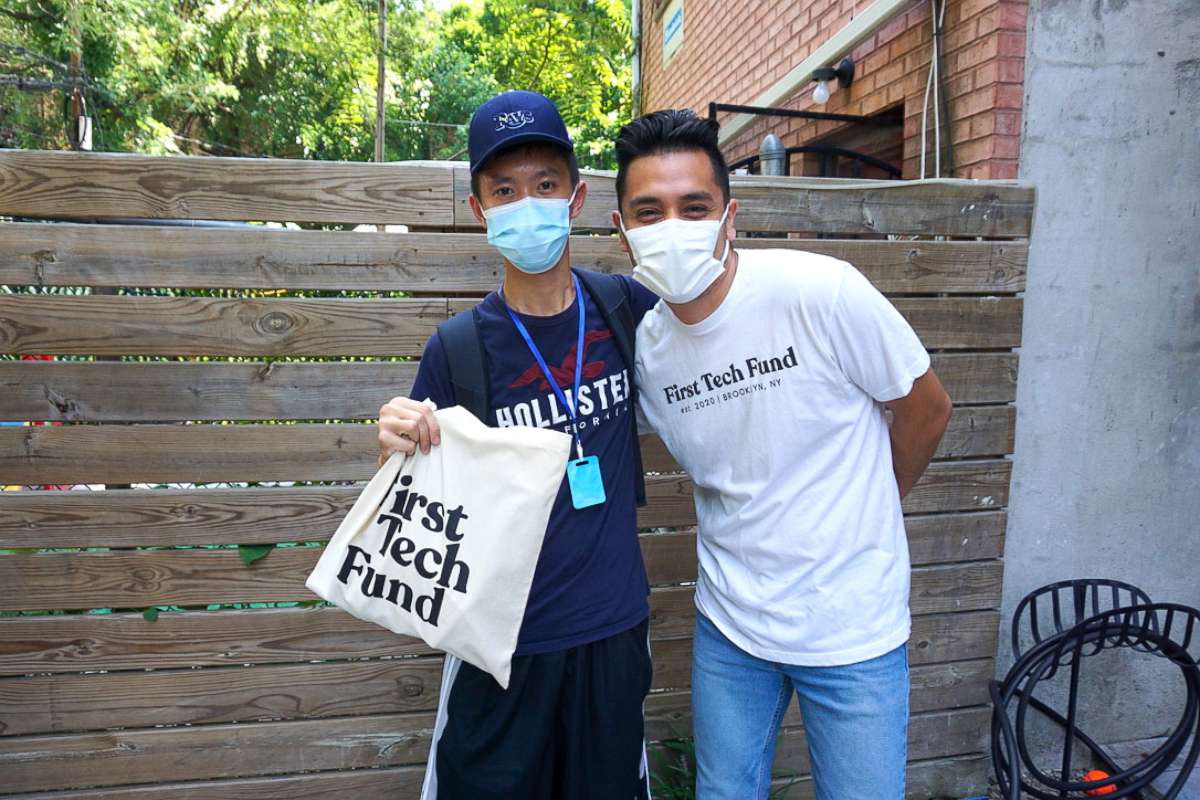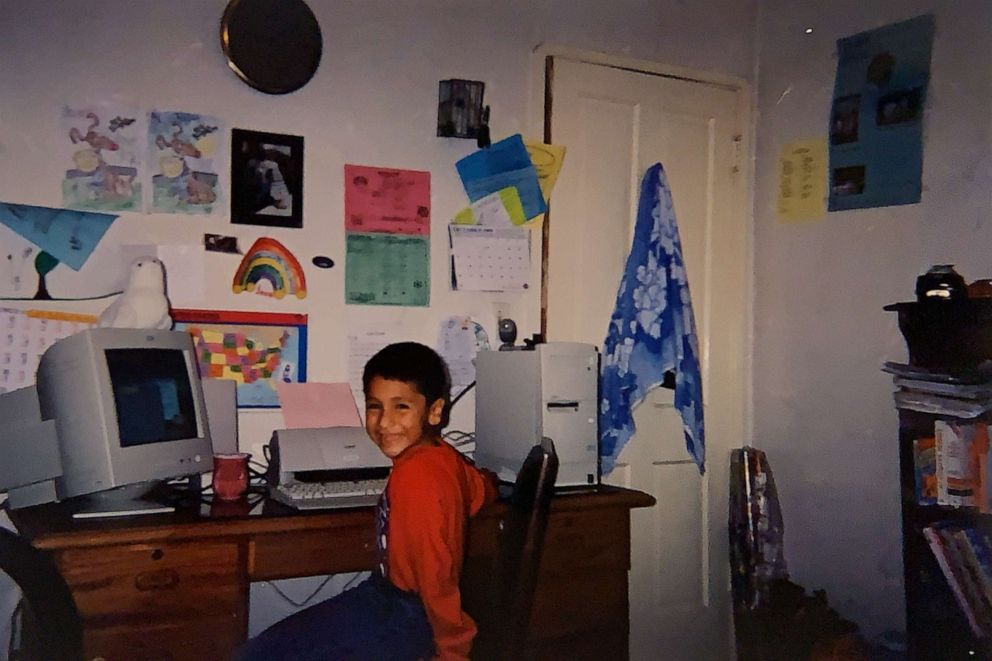America Strong: Immigrant-founded nonprofit provides laptops, tech to students in need
"I can never repay them for the situation I'm in right now," one student said.
It's not easy to do schoolwork on an old laptop with a poor internet connection.
Just ask Sabina Rodriguez, who went through her junior and senior year in online learning classes amid the COVID-19 pandemic. Her parents were both unemployed and couldn't afford new devices.
"I was literally on the world's oldest computer," Rodriguez said. Her mother is Colombian immigrant who previously worked as a house cleaner. Her father grew up in a low-income household, and chauffeured for a living.
"As a minority, especially in a financial situation, school was like our only way to success," she said. "Our parents came here so we could go to school."
That's when she discovered First Tech Fund, a new nonprofit dedicated to "closing the digital divide" among underserved high school students in New York City.

The COVID-19 pandemic highlighted the burgeoning digital divide among students of different economic backgrounds. About 25% of all school-aged children across the U.S. live without the sufficient technology or access to Wi-Fi at home, according to the National Education Association.
It's a situation First Tech Fund co-founder Josue De Paz knew well, and when the pandemic forced kids out of school and back into their homes, it was a need he was determined to help solve.
The organization offers high school students a year-long fellowship in which they are supplied with a laptop and a Wi-Fi hotspot, with unlimited internet access. They're also paired with a mentor and are given weekly virtual workshops on digital skills, career growth and other professional development opportunities.
"I can never repay them for the situation I'm in right now," Rodriguez said. She said she's spent hours on Zoom calls with mentors and professionals who've helped edit her resume, college essays and more.
In New York City, 14% of students didn't have a computer or computing device, and 13% didn't have adequate internet access, according to the New York Civil Liberties Union and New York State Education Department.

The NYSE report showed how students in Black and Latino school districts suffered disproportionately during the pandemic: Compared with students in largely white districts, they were about four times as likely to lack internet access and three times as likely to lack a device that allowed them to complete schoolwork.
De Paz said some students were doing homework from phones or sharing devices with siblings, making it much harder to complete assignments, let alone excel among peers. First Tech Fund targets these marginalized communities.
Rodriguez said students felt more encouraged and supported throughout the school year, especially those on their way to college. One of 52 students chosen from 743 applicants in the first cohort of fellowship winners, Rodriguez is now a freshman at Fordham University, pursuing a career in psychology and medicine.

Some 23 of the 24 college-eligible students in that 2020-2021 cohort are now enrolled at a two- or four-year institution.
In this upcoming school year, outreach was expanded to 86 students out of about 200 applicants. De Paz credited donors, partner organizations and elected officials for helping him help so many.
"There's more power in the community than we often give ourselves credit for," De Paz said. "We should be leveraging it -- now more than ever -- when people need that support."
De Paz, a DACA recipient, moved to the U.S. from Mexico when he was 5 years old. He thanks his mother for working long hours at several jobs to provide him with a personal laptop and dial-up internet.

"I saw my mom work two to three jobs in order for me to get that access, and then I really saw how that impacted my entire educational career," De Paz said. "Even before I had a bed, my mom was like, 'You're going to have a desk, and you're gonna have a computer,' so I was sleeping on the floor, but I still had what I needed for school."
De Paz is paying forward that gratitude to help students like Rodriguez.
"I've always struggled financially, growing up," she said, "so the fact that Josue, another Hispanic who grew up in the same situation, that he actually has the courage to like be like, 'I'm going to help, I'm going to give back' ... it really comes from, like, his heart."



